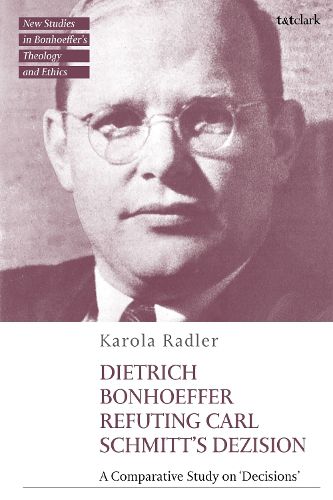Readings Newsletter
Become a Readings Member to make your shopping experience even easier.
Sign in or sign up for free!
You’re not far away from qualifying for FREE standard shipping within Australia
You’ve qualified for FREE standard shipping within Australia
The cart is loading…






Radler examines Bonhoeffer's and Schmitt's intellectual paradigms of thought of theology and jurisprudence. Whilst both thinkers encounter constitutional institutional models, they arrive at opposing conclusions and actions. This book tackles how they approach the indicators for a decision of choices between alternatives, the urgency of resolving the problems at hand, the intended goal, and the following active manifestation in Christ.
Radler reveals how Schmitt's form of Dezision, resting on a linear model of history, abstracts metaphysical content from objective normative evaluation and, in support of a human personality representing the idea of Christ, elevates the significance of the self over content and subject in structural analogy to theological dogma. On the other hand, Bonhoeffer's theology repudiates Schmitt's political-jurisprudential position, contesting that history ultimately focuses on leading to human wholeness through reconciliation.
$9.00 standard shipping within Australia
FREE standard shipping within Australia for orders over $100.00
Express & International shipping calculated at checkout
Radler examines Bonhoeffer's and Schmitt's intellectual paradigms of thought of theology and jurisprudence. Whilst both thinkers encounter constitutional institutional models, they arrive at opposing conclusions and actions. This book tackles how they approach the indicators for a decision of choices between alternatives, the urgency of resolving the problems at hand, the intended goal, and the following active manifestation in Christ.
Radler reveals how Schmitt's form of Dezision, resting on a linear model of history, abstracts metaphysical content from objective normative evaluation and, in support of a human personality representing the idea of Christ, elevates the significance of the self over content and subject in structural analogy to theological dogma. On the other hand, Bonhoeffer's theology repudiates Schmitt's political-jurisprudential position, contesting that history ultimately focuses on leading to human wholeness through reconciliation.